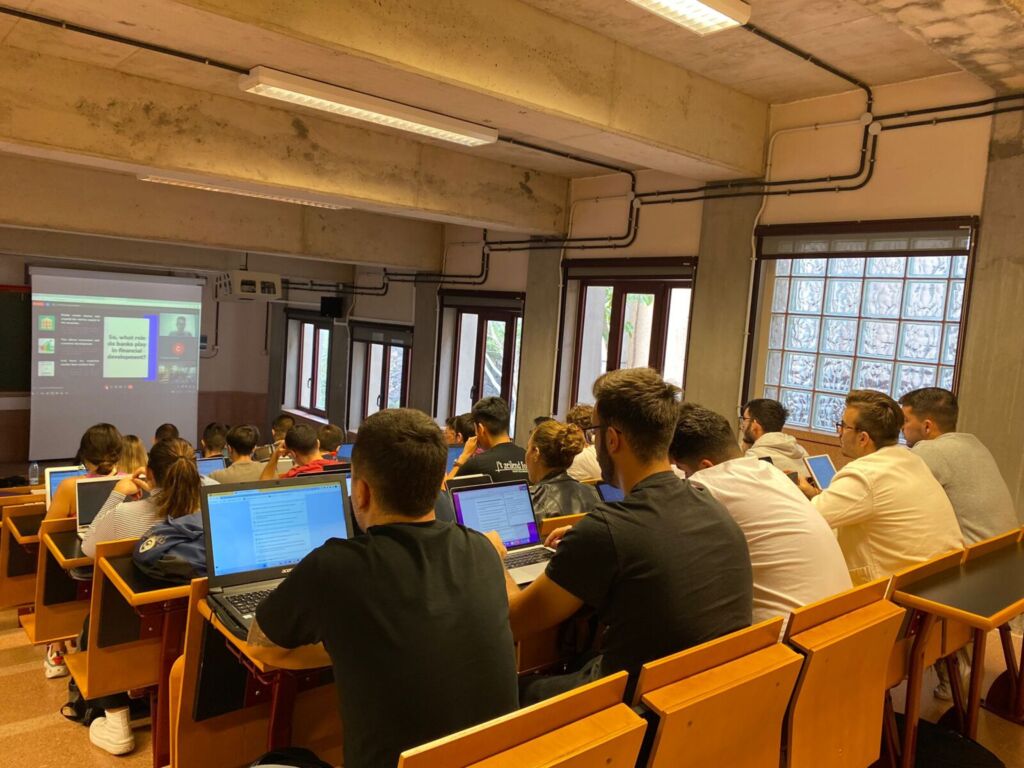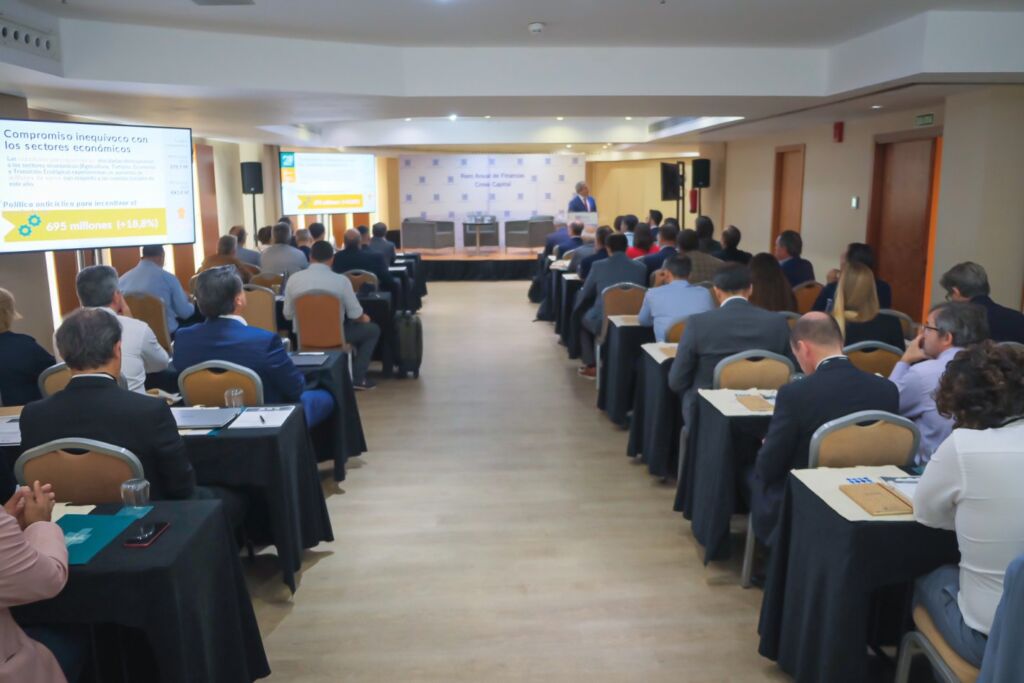Por Omayra González Castro
On the 23rd of November 2022, we had the opportunity to attend a talk given by Aitor Díaz García. The talk, entiled «Financial development or financialisation, the two sides of banking activity», addressed the following questions from a critical point of view:
- How does the financial system impact the real economy?
- Is the growth of the finance system good or bad for the real economy?
- What role do banks play in the increasingly unstable financial system?
The talk began by reflecting on why banks are so important. Aitor gave a short introduction about how the banks create interdependencies between creditors and borrowers by taking in deposits and making loans. He placed a particular emphasis on the fact that banks are the only financial institutions that can create money “out of nowhere”.
Later on, Aitor explained why money multiplier theory is not entirely correct, arguing that banks don´t actually need deposits to start making loans because everything is ultimately based on the notion that the customer will repay the loan, along with other statements.
To understand how the growth of the financial market can affect the real economy, he delved into the possible implications, giving us a practical example in which it was illustrated how money is not only going to the real economy, but also to financial markets.
To conclude, he explained why fluctuations and volatility become longer and more salient over the time and how we have transitioned from traditional banks to market-based banks.

Sobre Aitor Díaz García
Graduado en Contabilidad y finanzas por la Universidad de la Laguna, obteniendo el precio de excelencia al mejor expediente académico en la rama de conocimiento de Ciencias Sociales y Jurídicas, a la vez que el premio extraordinario en su titulación y el premio al mejor expediente académico de la Universidad de la Laguna 2021.
Además, ha realizado el master en Finanzas por la Universidad de Lund (Suecia) y, actualmente, desarrolla su segundo master de Finanzas en la Universidad de Groningen (Países Bajos).

Como estudiantes de último año de carrera, es muy inspirador que compañeros egresados nos cuenten cómo han sido sus trayectorias y nos ayuden a ver las posibles opciones una vez terminemos el grado, para así poder tomar nuestras propias decisiones. Aitor, que ha elegido el camino de la investigación y continúa formándose, fue capaz con su charla de hacernos reflexionar sobre el rol del sistema financiero y de los bancos, ayudándonos a conectar cuestiones teóricas complejas con una visión global, yendo desde lo particular (el ejemplo más sencillo) hasta lo general, y añadiendo su enriquecedor punto de vista crítico.
Gracias por compartirnos tu experiencia Aitor Díaz García.









